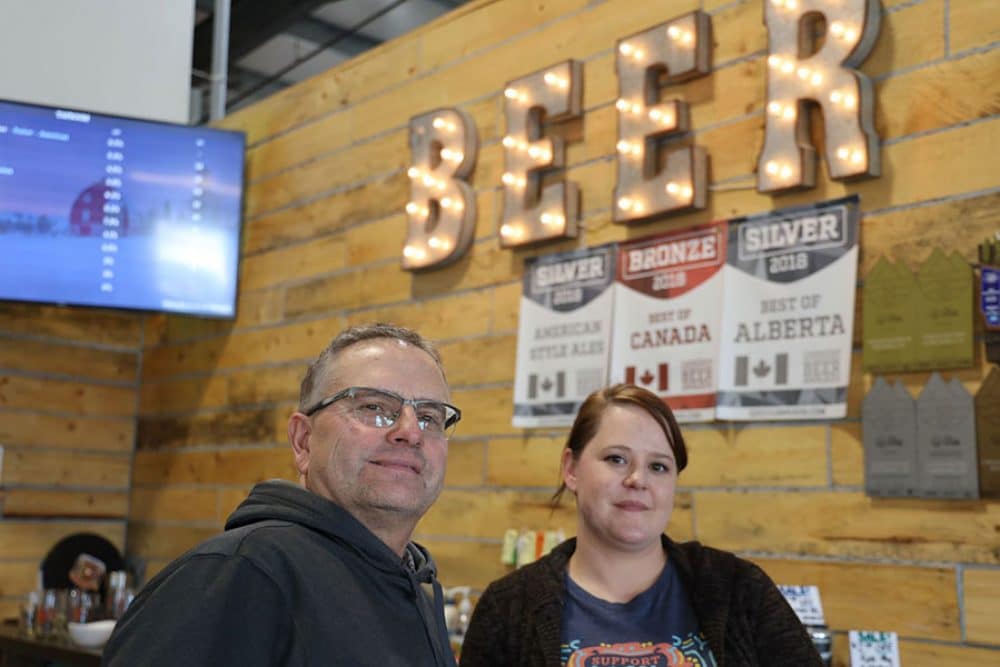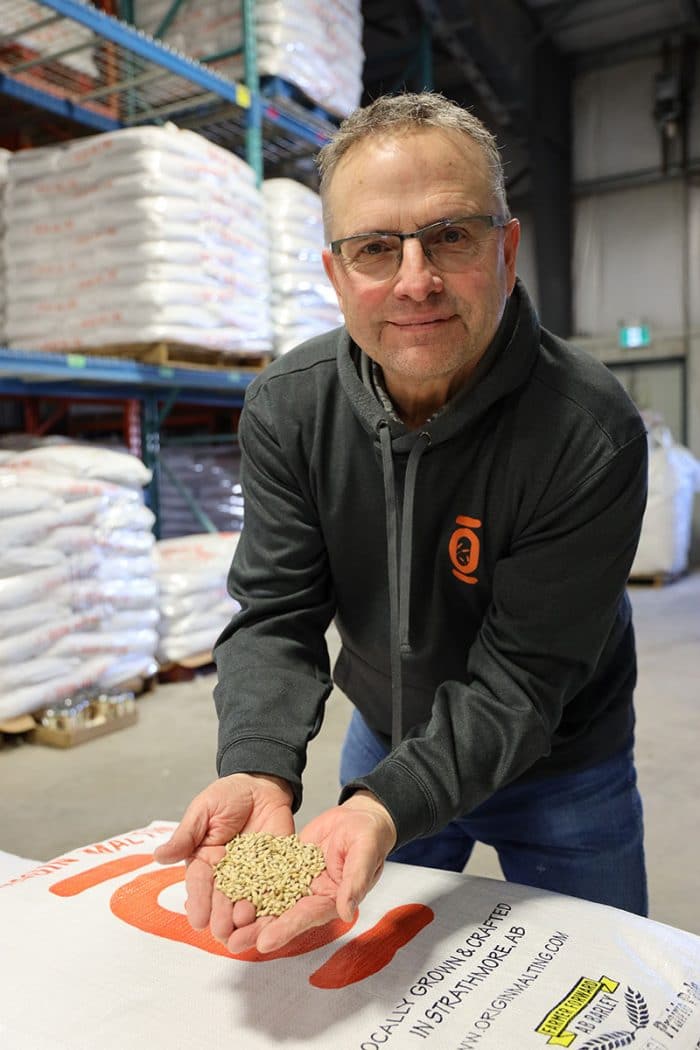Story
May 17, 2020
Beer and conservation come together for Alberta farming family
Strong conservation ethic helps keep good things brewing.

When it comes to agriculture in Alberta, there are obvious linkages to the food we eat and the land where it’s produced. But have you ever thought about a connection between wetlands and beer?
Meet Spencer Hilton and Meleah Geeraert, co-founders of Origin Malting and Brewing and part of the Hilton family. They grow some of the finest malt barley in Canada. As an Alberta-based company located in Strathmore, they are fully committed to producing good beer, maintaining their local roots and endorsing their family’s commitment to conservation.
“It’s very unique. We’re one of the only Canadian companies that grows, malts and brews with all their own product. We have deep roots in the community. We are proud to be from here and everyone likes a local story,” says Geeraert, sitting at the picnic tables inside the brewery after a lunch rush.
The connection between Hilton Ventures, the Hilton’s farm family operation, and beer has a long history.
In 2011, the family was approached by California craft brewery Lagunitas about supplying malt barley for their brewery. The brewery wanted to tell their beer drinkers stories about the farmers who supplied the barley for their beer.
The Hilton family story is compelling. The family settled in the Strathmore area in 1910. Over the years the family has been one of the first to adopt new technology, including conservation tillage in the 1970s. Geeraert’s grandfather, Gordon Hilton, was one of the first farmers to switch from cultivating his fields prior to seeding for weed control, and adopted new seeding methods which required no tillage. The new conservation farming saved wetlands on the field which prevented soil from washing away into the ditches, creeks and streams.
“The culture of our family has been to try to be positive and have an impact. That started with soil conservation. One of the things learned through conservation practices is that it improves water quality. It doesn’t let the run-off and erosion go into the water,” said Spencer Hilton, Geeraert’s father.
“Now it has become the normal,” said Hilton. “As the early innovators, it was never easy. We worked really hard at it.”
Now, through better management practices, improved genetics and targeted fertilizer placement, Hilton estimates their crops produce four to five times the yield, compared to the yield on the farm in the 1950s.
That commitment to conservation was part of the story Lagunitas wanted to share.
In 2012, with the end of the Canadian Wheat Board, five farmers, including the Hilton family, formed Chinook Arch Growers, to provide malt barley to Lagunitas. The grower group has since expanded to 14 producers and provides 30,000 tonnes of Alberta malt barley to Lagunitas.
“We’ve had this great relationship since then. We would send them crop reports and videos. They were enthused with the idea. Our barley all went to Lagunitas at that time,” he says.
With such a good response to their story from Lagunitas and its beer drinkers, the family began exploring the idea of turning some of their barley into malt and have their malt barley shared locally.
Now, Origin’s malt is used by more than 55 breweries in Alberta.
“They want that local story, too,” says Geeraert.
At Origin, the brewery portion of the business was added to the malt house tucked into Strathmore’s industrial park. Within the first year the brewery started to win beer awards, demand soared and the brewery was expanded three times.
“It’s always been our culture to do what can to enhance our local environment.”
~Spencer Hilton, co-founder of Origin Malting and Brewing

The beer/conservation connection: the Hiltons partner with DUC
It’s not the first time there has been a beer/conservation connection to the Hilton farm. In 1982, DUC approached the Hilton family and two neighbours to flood a low-lying area of farmland to serve as waterfowl habitat. Called the Hilton Project, the 160-acre project allowed DUC to maintain the marsh not only for the sake of waterfowl, but also to put something back into the land.
Already practicing soil conservation, the family wanted to focus on improving the water quality on the farm. The DUC project area was surrounded by cultivated cropland which carried with it a fair amount of agricultural fertilizer.
The connection to conservation and the environment appealed to the family. The idea was foreign but fit in with what the family believed about soil. Why not do something similar with wetland conservation and waterfowl diversity? Combining the project with the Western Irrigation District’s ability to regulate water to the area was key to the project’s success.
Since then, the Hilton family has worked with DUC on two smaller projects to enhance waterfowl habitat in the area.
“It’s always been our culture to do what can to enhance our local environment,” said Hilton.
“We can go to the public and say we are improving water quality because we’re partnering with Ducks Unlimited, a great conservation company, we’re improving air quality because what we’re able to do with our soil and wetland conservation systems, and we have a very positive start of a conversation about agriculture.”
